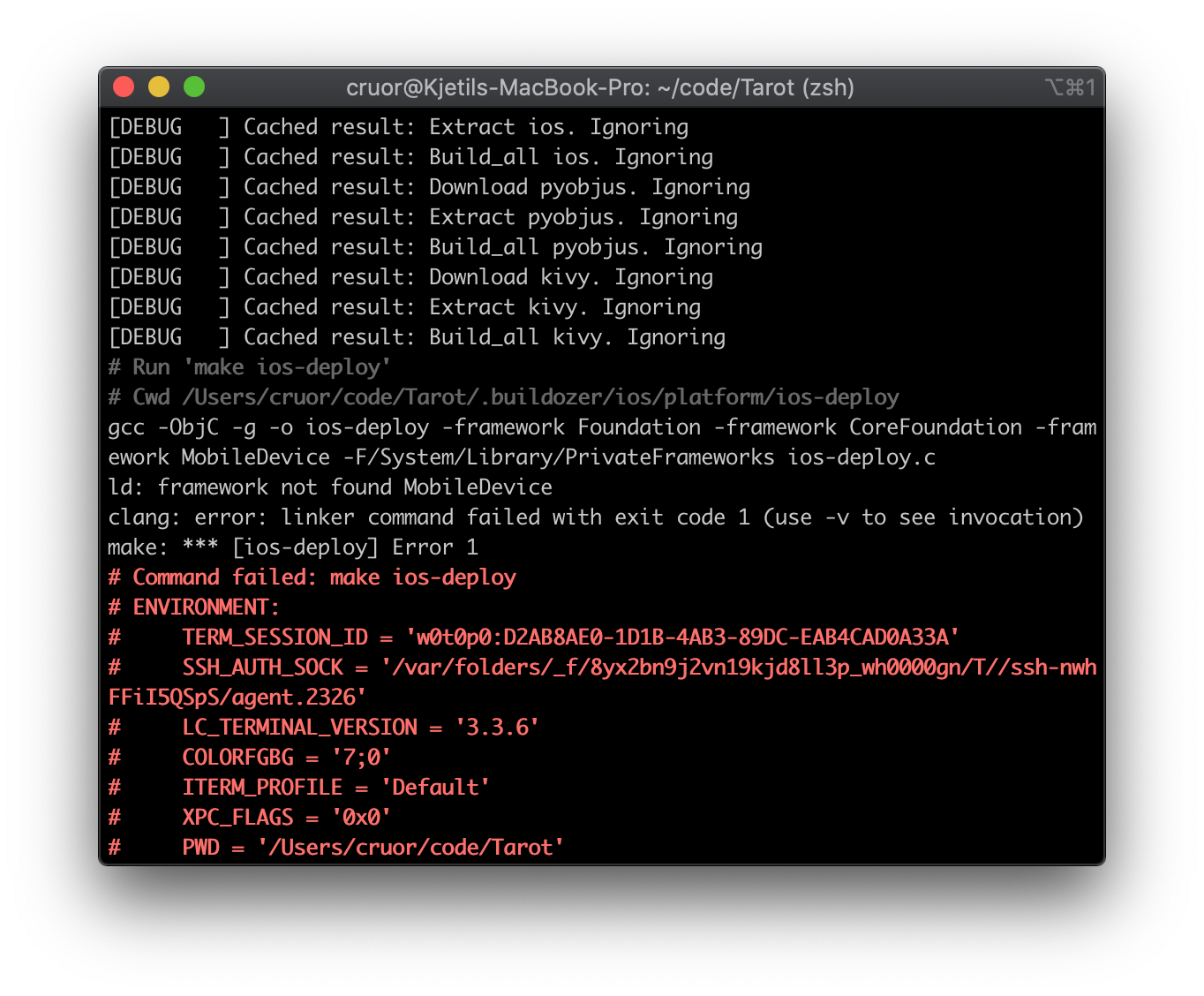You signed in with another tab or window. Reload to refresh your session.You signed out in another tab or window. Reload to refresh your session.You switched accounts on another tab or window. Reload to refresh your session.Dismiss alert
Currently buildozer is using ios-deploy 1.7.0 which appears to be heavily outdated (they've since made it node based). In the makefile for this specific version, it references the MobileDevice.framework framework, which is no longer located in the spot referenced.
The line central to the issue:
I'm not entirely sure what the best approach to fix this would be, but presumably it would be to update the ios-deploy version used to the latest, 1.10.0.
Otherwise maybe alter that line in the ios-deploy makefile before the make command is executed?
@cruor99 could you please post the full build log so this can be investigated?
It's often very difficult to know how to act on a truncated build log or screenshot
This issue has been automatically closed because there has been no response to our request for more information from the original author. With only the information that is currently in the issue, we don't have the means to take action. Please reach out if you have or find the answers we need so that we can investigate further.
Versions
Description
Currently buildozer is using ios-deploy 1.7.0 which appears to be heavily outdated (they've since made it node based). In the makefile for this specific version, it references the MobileDevice.framework framework, which is no longer located in the spot referenced.
The line central to the issue:
The correct fix:
I'm not entirely sure what the best approach to fix this would be, but presumably it would be to update the ios-deploy version used to the latest, 1.10.0.
Otherwise maybe alter that line in the ios-deploy makefile before the make command is executed?
buildozer.spec
Command:
Spec file:
Logs
Apologies for just an image, but it's a simple error:

The text was updated successfully, but these errors were encountered: